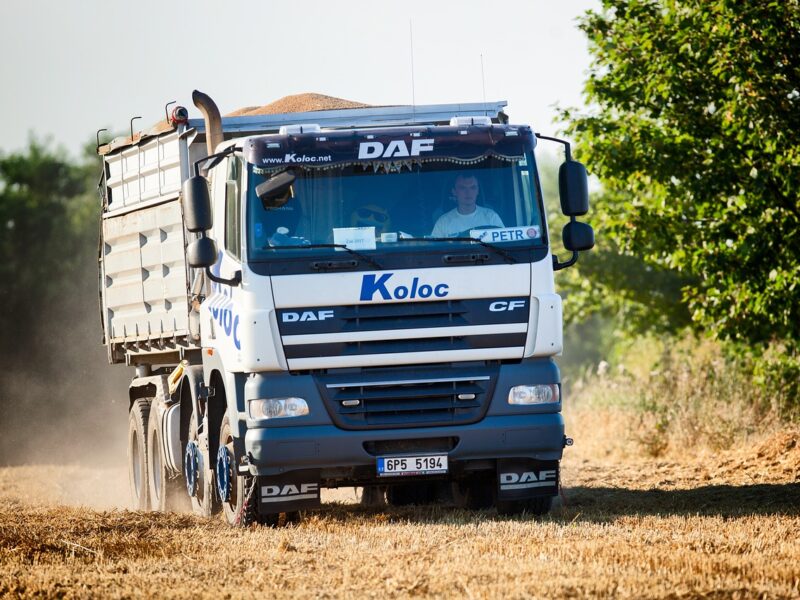With its wide landscapes and strong transportation network, Canada is among the best destinations for truck driving careers. Due to a steady stream of demand for experienced truck drivers, opportunities are growing across the country.
In this comprehensive guide, we will discuss truck driving jobs in Canada, career prospects, and practical tips to get you started with your application, while also answering some of the most frequently asked questions to help you make an informed decision.
Essential Qualifications and Requirements for Truck Driving Jobs in Canada
Before hitting the road, it would be good to understand what qualifications are necessary for driving a truck in Canada. Here is what you’ll need to get started:
1. Valid Commercial Driver’s License (CDL)
- CDL Categories: For truck driving in Canada, drivers usually have to obtain a Class 1 or Class A license to operate heavy trucks.
- Training Programs: Enrollment in a licensed truck driving school for proper training and practical experience is a step in the right direction.
- Testing: Both written and practical tests should be taken for the license.
2. Clean Driving Record
- Safety First: A clean driving record is what employers want because safety is always the first concern.
- Background Checks: Be prepared for comprehensive background checks on you, covering driving history to criminal record.
3. Physical Fitness
- Health and Medical Requirements: Truck driving may be very stressful physically. Be sure to remain healthy enough so you will fulfill all the requirements in terms of vision and hearing, amongst others.
- Medical Check-Ups: You also need to undergo periodic checks with doctors ascertaining your health and fitness to drive over long distances.
4. Additional Endorsements
- Special Cargo: If you transport hazardous or oversized cargo then there are certain special endorsements one should look for.
- Course Training: Higher training programs exist in specialized training courses, and these raise employability.
Tips for Truck Driving Jobs in Canada
Getting the right job as a truck driver needs serious preparations and insight related to the profession. Some helpful tips are as follows:
1. Build a Strong Resume
Specify Experience: Mention your experience in driving, endorsements, and specialized training.
Safety Record: Mention your safety concern and any appreciation received for safe driving.
Licenses/Certifications: Mention all relevant certificates, licenses, and additional training that set you apart.
2. Network in the Industry
- Join Associations: Joining associations related to trucking will, like the Canadian Trucking Alliance, provide good networking opportunities along with job postings.
- Utilize Social Media: LinkedIn will help connect you with industry professionals along with transportation recruiters.
- Attend Job Fairs: Attend transportation and logistics job fairs to meet employers in person.
3. Job Boards
- Niche Websites: Utilize job boards specializing in transportation and logistics. Sites such as Indeed and Workopolis have many opportunities listed.
- Company Websites: Check the career pages of large trucking companies and apply directly.
4. Preparation for Interviews
- Practice Safety Scenarios: Be prepared to discuss real-life situations regarding road safety and problem-solving.
- Understand the Industry: Stay up-to-date on regulations, fuel efficiency techniques, and new technologies in truck driving.
- Professional Presentation: Dress appropriately and show a professional attitude and manner during the interviews.
Benefits of Truck Driving Jobs in Canada
Truck driving is way more than bringing home a paycheck. Here’s what makes it a gratifying career:
1. Competitive Compensation
- Earning Potential: Depending on your experience and what you haul, drivers can earn competitive wages.
- Benefits Packages: Many employers give benefits packages, which include health, retirement plans, and bonuses.
2. Flexible Work Hours
- Varied Schedules: While most truck driving jobs start early in the morning or are quite long, the scheduling is flexible, especially if you are an owner-operator.
- Regional Diversity: You can choose jobs that best fit your way of life, whether it’s regional routes or cross-country hauls.
3. Career Advancement Opportunities
- Specialization: Experienced drivers can develop specializations, such as hauling hazardous materials or long-haul driving.
- Management Roles: Drivers can assume supervisory positions or take up the mantle of training instructors.
- Self-Employment: Later on, a large number of truck drivers come to own their trucks thus increasing freedom and returns to the job.
FAQs on Truck Driving Jobs in Canada
Q1: What is the average salary for truck driving jobs in Canada?
A: In Canada, the salaries of truck driving jobs are determined by experience, location, and cargo type. On average, it may take a mediocre entry-level driver to CAD 40,000-50,000 per year, while experienced drivers earn more than CAD 70,000 annually.
Owner-operators have the potential to increase their earnings even more, depending on the terms of their contract and freight volume.
Q2: Do I need prior experience to apply for a truck driving job in Canada?
A: Although firms are hiring new drivers, most of the possible employers would hire people with clean driving records and with a few years of experience within the field.
Completion of accredited training for driving trucks will notably raise one’s chances to find work – provided an appropriate endorsement is added too.
Q3: How do I get a Commercial Driver’s License (CDL) in Canada?
A: In Canada, to get a CDL, one should attend a reputable truck driving school for the full training course and then undergo both written and practical tests.
Certain requirements may vary depending on each province; you should contact your nearest licensing authority for more information.
Q4: What are the most in-demand routes for drivers in Canada?
A: Routes vary based on regional needs. Some of the busiest corridors would include the Trans-Canada Highway, key metropolitan areas such as Toronto, Montreal, and Vancouver, and others that link resources to industrial sites. Research regional job trends to find job opportunities matching your preferred routes.
Q5: Are there opportunities for female truck driving job in Canada?
A: Of course! The trucking industry in Canada is growing and diversifying continuously. Many companies are actively recruiting female drivers and providing them with supportive workplaces, mentorship programs, and diversity initiatives within the workforce.
How to Overcome the Common Challenges in Truck Driving Jobs
While being a truck driver offers a rewarding career, there are some challenges to it. How to navigate challenges in truck driving jobs:
1. Long Hours and Fatigue
- Breaks: Take regular breaks. It is the law and it is safe.
- Rest Stops: Take a break at a rest stop on long hauls.
- Route Planning: Plan routes to minimize fatigue.
2. Solitude on the Road
- Stay Connected: Technology allows drivers to stay in touch with family and friends.
- Online Forums and Social Media: There are many online forums and social media groups where truckers share experiences and advice.
3. New and Changing Regulations
- Stay Current: Regularly updated information on regulatory industry requirements and compliance standards.
- Professional Development: Workshops and training are important features to keep current with changing best practices.
Conclusion
Truck driving jobs in Canada are rewarding for their lucrative salaries, job security, and travel opportunities around one of the most exquisite countries globally. Whether new or seasoned in this profession, preparation will still be the underlying factor between success and failure.
Generally, this shall include:
- General training and licensing.
- Networking, having an appealing resume.
- Knowledge of new trends and updated regulations within the industry.
Opportunities abound in Canada’s transportation sector, and with a little bit of determination and skill, you can build a rewarding career on the open road.






